
BLOG
In the ever-evolving landscape of the alcohol industry, maintaining Alcohol Compliance is vital for legal operation, consumer safety, and brand reputation. Whether you run a bar, restaurant, distributor, or manufacturing facility, understanding and adhering to these regulations helps prevent costly penalties and safeguard your business’s future. This comprehensive guide will explore what Alcohol Compliance entails, why it’s crucial, and how you can ensure your business consistently meets legal requirements and industry standards.
What is Alcohol Compliance?
Alcohol Compliance refers to the adherence to federal, state, and local laws regulating the production, distribution, sale, and consumption of alcoholic beverages. These regulations are designed to ensure public safety, prevent underage drinking, control alcohol distribution, and promote responsible consumption. Non-compliance can result in legal penalties, license revocations, financial losses, and damage to your reputation.
Why Is Alcohol Compliance Important?
Adhering to alcohol laws and standards isn’t just a legal obligation—it also benefits your business in numerous ways:
- Legal Protection: Ensures operations stay within the boundaries of the law, avoiding fines or shutdowns.
- Consumer Safety: Protects consumers from unsafe products and responsible consumption practices.
- Reputation Management: Establishes your establishment as a responsible and trustworthy business.
- Financial Savings: Prevents costly legal proceedings and license violations.
- Operational Efficiency: Streamlines procedures around licensing, sales, and inventory management.
Considering these benefits, it’s clear that Alcohol Compliance should be a top priority for any alcohol-related business.
Key Components of Alcohol Compliance
Achieving and maintaining Alcohol Compliance involves understanding multiple facets of the industry regulations. These include:
Licensing and Permits
Obtaining the appropriate licenses is foundational for legal operation. These vary depending on your business type, location, and offerings, including:
- Retail licenses
- Wholesale licenses
- Manufacturing permits
- Special event authorizations
Age Verification Policies
Strictly enforcing legal drinking age (usually 21+) is essential. Effective age verification methods include:
- ID checks
- Use of electronic verification tools
- Staff training on age verification protocols
Alcohol Serving Practices
Protocols for responsible serving, including:
- Limiting alcohol quantities per customer
- Recognizing signs of intoxication
- Maintaining a safe environment
Recordkeeping and Reporting
Accurate documentation of sales, inventory, and taxes is often mandated. This ensures transparency and compliance during inspections and audits.
Labeling and Packaging Regulations
Compliance with labeling laws involves proper ingredient listing, health warnings, and tamper-evident packaging.
Advertising and Promotion Laws
Restrictions on marketing practices help prevent underage targeting and misleading advertising.
How to Ensure Your Business Meets Alcohol Compliance Standards
Achieving consistent compliance requires proactive strategies, ongoing staff training, and diligent recordkeeping. Here are key steps to align your operations with legal standards:
1. Stay Informed on Local, State, and Federal Laws
Laws surrounding alcohol sales frequently change. Regularly consult authoritative sources like the Alcohol and Tobacco Tax and Trade Bureau (TTB) and local regulatory agencies for updates.
2. Obtain All Necessary Licenses and Permits
Ensure your business has secured the correct licenses for your operations. Renew licenses timely and understand renewal requirements to avoid lapses.
3. Implement Robust Staff Training Programs
Educate staff about legal obligations, age verification, responsible serving, and recognizing intoxication.
4. Develop Clear Policies and Procedures
Create written policies on alcohol sales, consumption limits, and handling intoxicated customers to maintain consistency.
5. Use Technology for Compliance
Leverage tools such as electronic ID scanners, inventory management software, and point-of-sale systems to track sales and verify age accurately.
6. Conduct Regular Internal Audits
Assess your compliance measures periodically to identify and rectify any gaps or violations.
7. Consult Legal Experts and Compliance Consultants
Engage specialists with expertise in alcohol laws to audit your procedures and provide ongoing guidance.
Challenges in Maintaining Alcohol Compliance
Despite best efforts, businesses often face hurdles such as:
- Variations in local laws and regulations
- Staff turnover leading to inconsistent training
- Evolving advertising restrictions
- Managing legal sales hours and restrictions
Overcoming these challenges involves continuous education, process automation, and active oversight.
Best Practices for Safe and Compliant Alcohol Sales
Implementing industry best practices not only helps with compliance but also builds customer trust:
- Conduct regular staff refresher courses.
- Use clear signage on alcohol sales and consumption policies.
- Enforce strict ID checks.
- Limit bulk purchases to prevent illegal resale.
- Promote responsible drinking and customer safety.
The Role of Industry Associations and Resources
Joining industry associations such as the National Restaurant Association or state-specific alcohol beverage associations can provide valuable resources, updates on regulatory changes, and training programs.
Additionally, the Centers for Disease Control and Prevention (CDC) provides guidelines and educational materials for responsible alcohol service, which can enhance your compliance efforts (source).
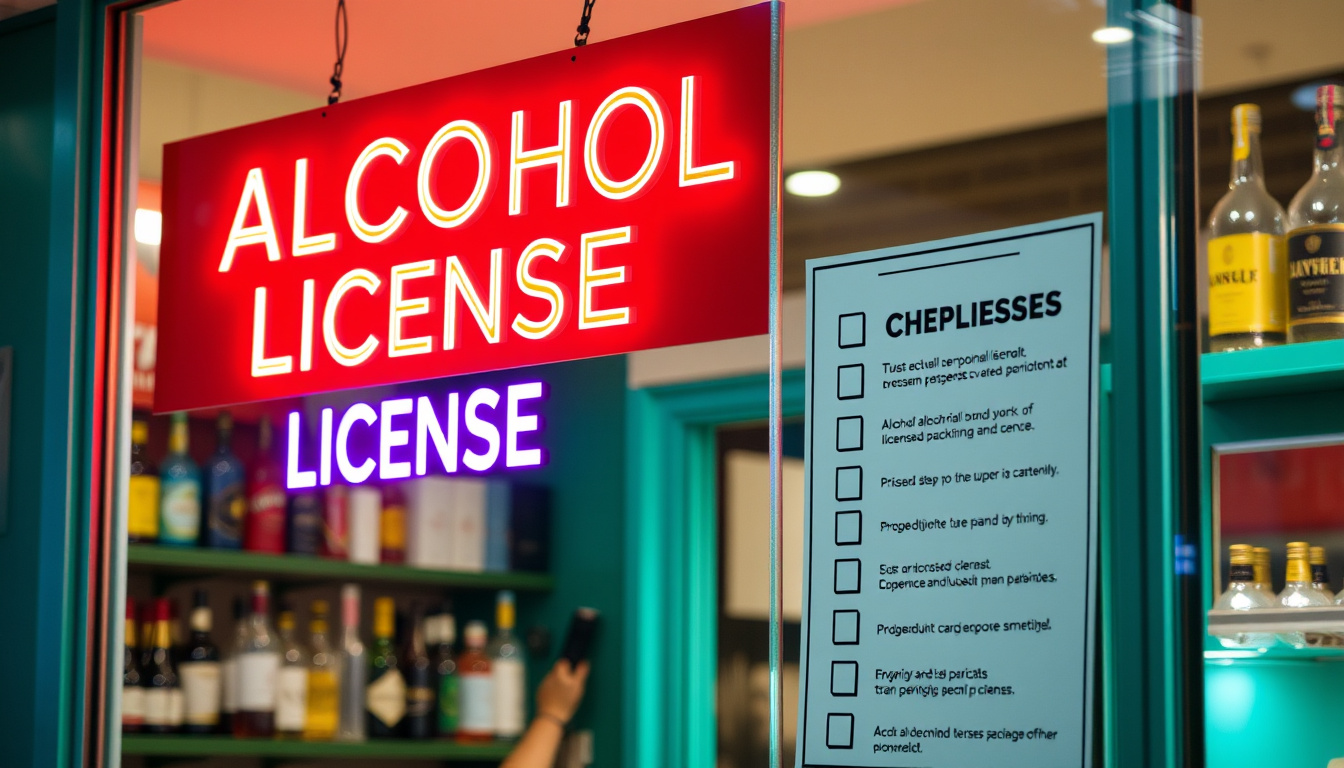
Summary: Staying Ahead in Alcohol Compliance
Ensuring your business meets Alcohol Compliance standards is an ongoing process that involves understanding complex regulations, investing in staff training, and using technology effectively. By prioritizing compliance, you protect your business from legal risks, promote responsible consumption, and build a loyal customer base.
Remember, staying compliant isn’t a one-time task but a continuous commitment to safety, legality, and corporate responsibility.
Frequently Asked Questions about Alcohol Compliance
Q1: What are the main legal requirements for alcohol compliance in my business?
A: The primary legal requirements include obtaining proper licensing, verifying customers’ ages, adhering to authorized sales hours, maintaining accurate records, and following responsible serving practices.
Q2: How can I ensure my staff follow alcohol compliance policies?
A: Regular training sessions, clear written policies, and the use of verification technology can reinforce compliance. Regular audits and feedback also help maintain high standards.
Q3: What are common violations that lead to non-compliance penalties?
A: Common violations include serving minors, overserving intoxicated patrons, selling outside permitted hours, selling to underage or intoxicated customers, and failing to keep proper records.
Final Thoughts
Maintaining Alcohol Compliance is integral for your business’s success and reputation. Stay informed about current laws, implement rigorous internal controls, and foster a culture of responsibility. By doing so, you not only avoid legal pitfalls but also contribute positively to community safety and responsible drinking initiatives.
For further guidance, consult reputable sources such as the Alcohol and Tobacco Tax and Trade Bureau (TTB) and local regulatory agencies to ensure your practices are fully compliant and up to date.

BLOG
In the vibrant city of Baton Rouge, the nightlife thrives, with bartenders serving up cocktails, craft beers, and a warm atmosphere for patrons. However, amidst the fun and excitement, it is imperative for these professionals to be equipped with the right knowledge and skills to serve alcohol responsibly. This is where Alcohol Server Certification becomes essential. In this local guide, we will explore everything bartenders in Baton Rouge need to understand about Alcohol Server Certification — from its benefits and state regulations to the steps for obtaining certification and best practices for responsible service. Whether you’re a seasoned bartender looking to sharpen your skills or a newcomer eager to pave your way in the industry, this comprehensive guide will serve as your go-to resource.
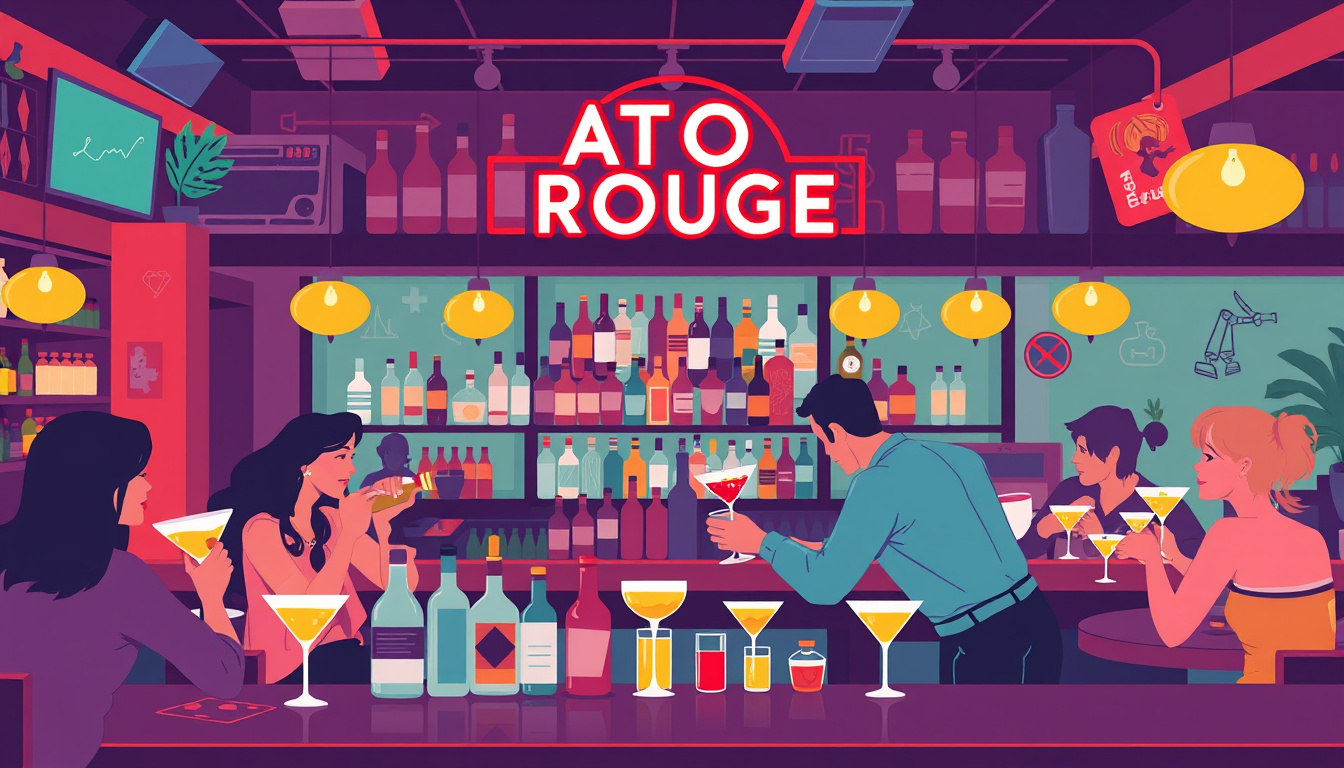
Key Takeaways
- Alcohol server certification is essential for bartenders in Baton Rouge to serve drinks responsibly.
- Certification offers numerous benefits, including increased job opportunities and enhanced customer safety.
- Louisiana state regulations outline specific requirements for alcohol service that bartenders must adhere to.
- The process of obtaining certification involves specific steps, including training courses and passing an exam.
- Ongoing education and training resources are available to help bartenders stay updated on best practices for responsible serving.
Understanding Alcohol Server Certification
Understanding Alcohol Server Certification is crucial for bartenders in Baton Rouge, as it not only ensures compliance with local laws but also promotes responsible alcohol service. For those pursuing a career in bartending, obtaining an Alcohol Server Certification for Baton Rouge Bartenders is often a necessary step. This certification provides essential training on alcohol laws, responsible serving practices, and how to recognize intoxication and intervene appropriately. In Baton Rouge, the certification process typically includes a comprehensive training program followed by an assessment. By completing this certification, bartenders not only enhance their skills but also increase their employability in a competitive market, ensuring they can provide safe and enjoyable experiences for their patrons.
Benefits of Certification for Bartenders
Receiving an Alcohol Server Certification for Baton Rouge bartenders offers numerous benefits that not only enhance one’s career prospects but also contribute to a safer drinking environment. First and foremost, this certification equips bartenders with essential knowledge about responsible alcohol service, which is crucial in preventing over-serving and ensuring guests’ safety. Moreover, certified bartenders are often preferred by employers, leading to better job opportunities and potentially higher wages, as establishments tend to seek out trained staff who can minimize legal liabilities. Additionally, the training programs typically cover local laws and regulations regarding alcohol service, empowering bartenders to navigate complex compliance issues confidently. By obtaining their Alcohol Server Certification, Baton Rouge bartenders can elevate their professionalism, improve customer service skills, and foster a positive reputation within the community.
‘Alcohol is a very big part of our life and our culture, and we need to be responsible about it.’ – Avery Brooks
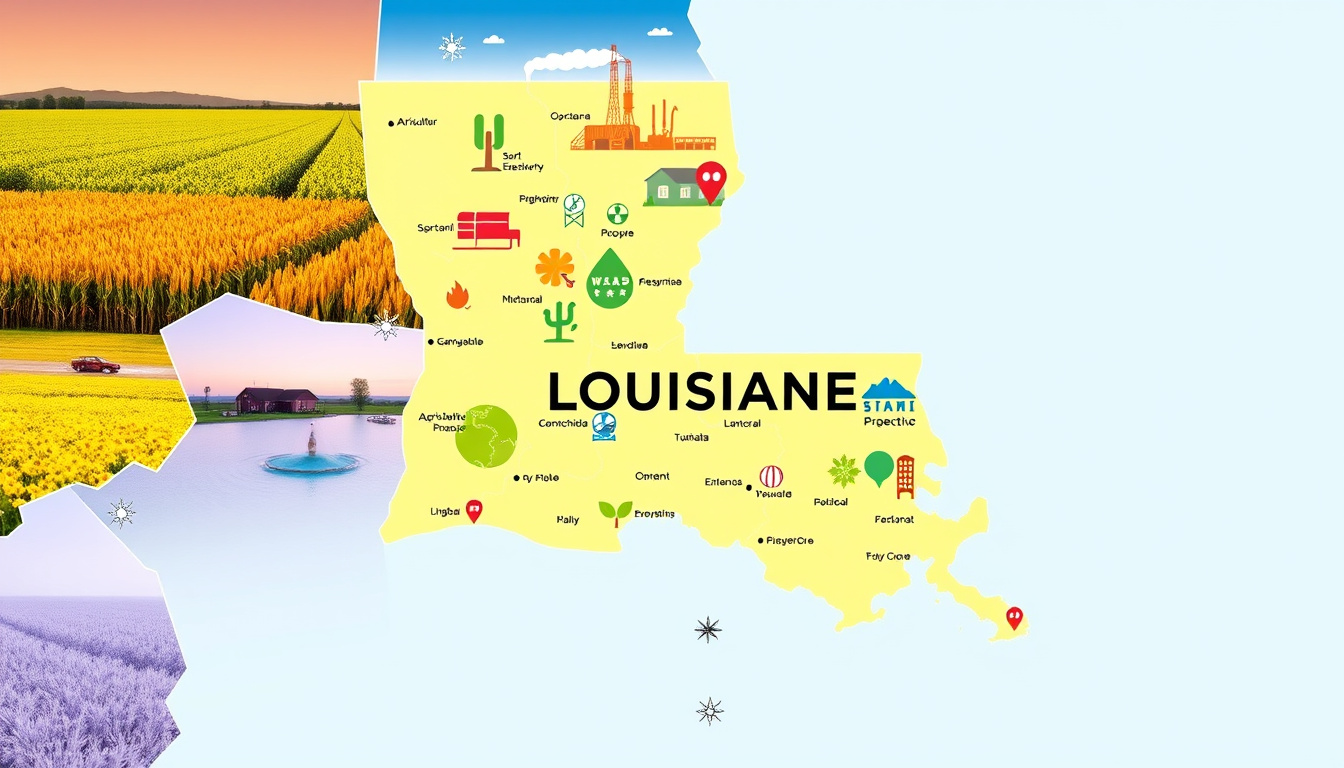
Overview of State Regulations in Louisiana
In Louisiana, local regulations surrounding alcohol service play a crucial role in maintaining public safety and promoting responsible consumption. The Alcohol Server Certification for Baton Rouge Bartenders: A Local Guide provides essential insights for those seeking to work in the vibrant cocktail scene of Louisiana’s capital. To legally serve alcohol in Baton Rouge, bartenders must complete a state-approved training program that educates them on responsible alcohol service, the effects of alcohol on the body, and the importance of preventing underage drinking. Additionally, regulations require servers to renew their certification periodically, ensuring that all bartenders remain knowledgeable about current laws and best practices. This guide walks aspiring bartenders through the certification process and highlights the significance of compliance with local laws, making it an invaluable resource for success in Baton Rouge’s bustling nightlife.
Steps to Obtain Alcohol Server Certification
Obtaining your Alcohol Server Certification for Baton Rouge Bartenders is an essential step for anyone looking to serve alcohol responsibly in the vibrant nightlife of Louisiana’s capital. The process typically begins with enrolling in an accredited training program, which you can find offered by various local institutions or online platforms. These programs focus on alcohol laws, safe serving practices, and how to handle difficult situations that might arise while serving customers. After completing the course, aspiring bartenders must pass a certification exam to demonstrate their knowledge. It’s important to check with the City of Baton Rouge’s regulations to ensure your certification meets local requirements, as these can vary. Once certified, you’ll not only boost your employability but also contribute to a safer drinking environment in your community.
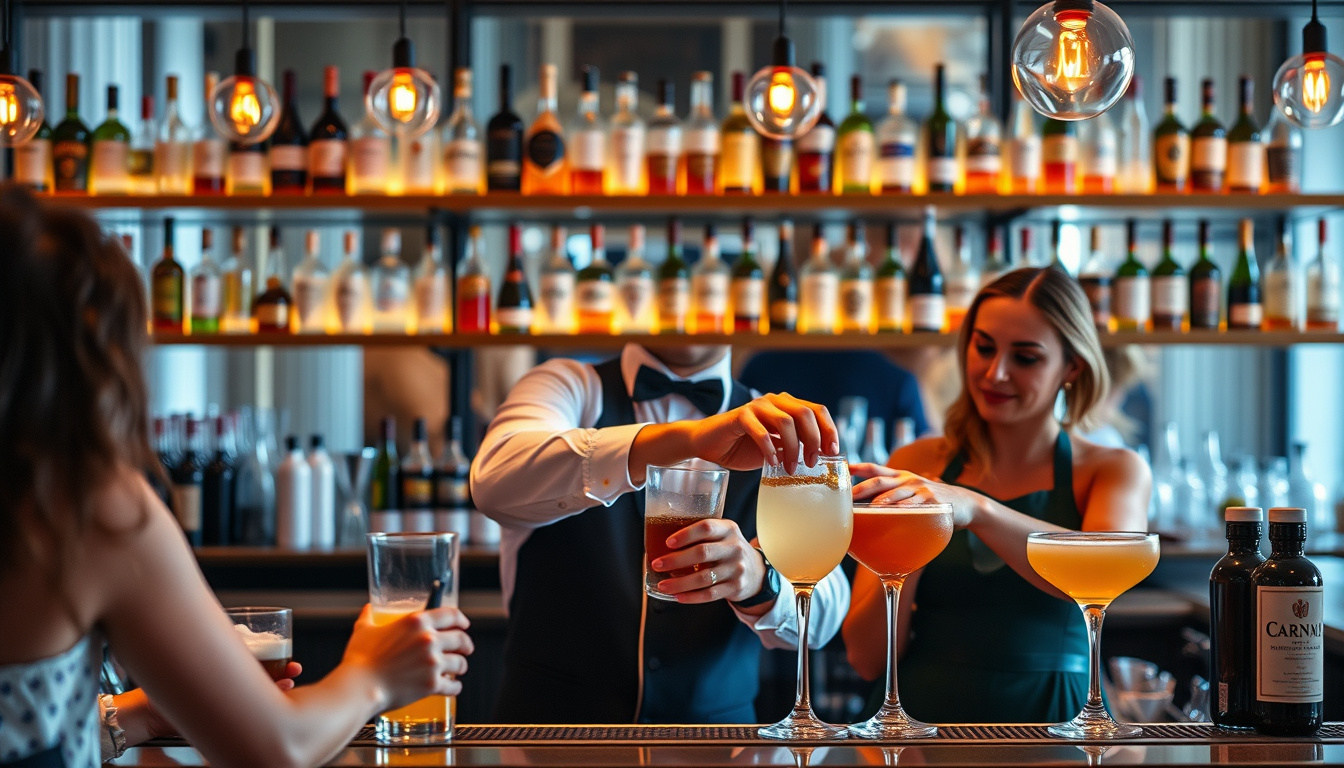
Best Practices for Responsible Serving
When it comes to the hospitality industry, ensuring safe and responsible serving practices is fundamental. For bartenders in Baton Rouge, obtaining an Alcohol Server Certification is not just a legal requirement but also an essential step in promoting responsible alcohol service. This local guide provides key insights into best practices for responsible serving that every Baton Rouge bartender should embrace. Firstly, understanding the legal implications surrounding alcohol service is crucial; bartenders must be familiar with state laws regarding age restrictions and over-serving. Furthermore, effective communication skills are vital in assessing a patron’s level of intoxication and making informed decisions about service. Training programs specific to Alcohol Server Certification for Baton Rouge Bartenders often include techniques for recognizing signs of intoxication, as well as methods for safely declining service to individuals who have reached their limit. Additionally, fostering a welcoming environment can promote responsible drinking—offering water alongside alcoholic beverages and providing recommendations on drink choices can help patrons enjoy their experience without overindulging. By adhering to these best practices and completing the required certification, bartenders in Baton Rouge can enhance their skills and contribute to the overall safety and enjoyment of their customers.
Resources for Ongoing Education and Training
For bartenders in Baton Rouge, pursuing an Alcohol Server Certification is not just a legal requirement; it’s a vital resource for ongoing education and training. This local guide highlights essential resources that can help both new and experienced bartenders enhance their skills and knowledge in responsible alcohol service. Programs such as the Louisiana Department of Health’s approved training courses provide comprehensive insights into the laws governing alcohol service, safety practices, and effective bartending techniques. Additionally, local community colleges often offer workshops and seminars focused on bartending skills, cocktail mixing, and customer service. Networking with other local bartenders through industry associations can also serve as a valuable resource for sharing knowledge and experiences related to alcohol server certification. By investing in your education, you not only meet the certification requirements but also position yourself as a knowledgeable professional in the vibrant Baton Rouge nightlife.
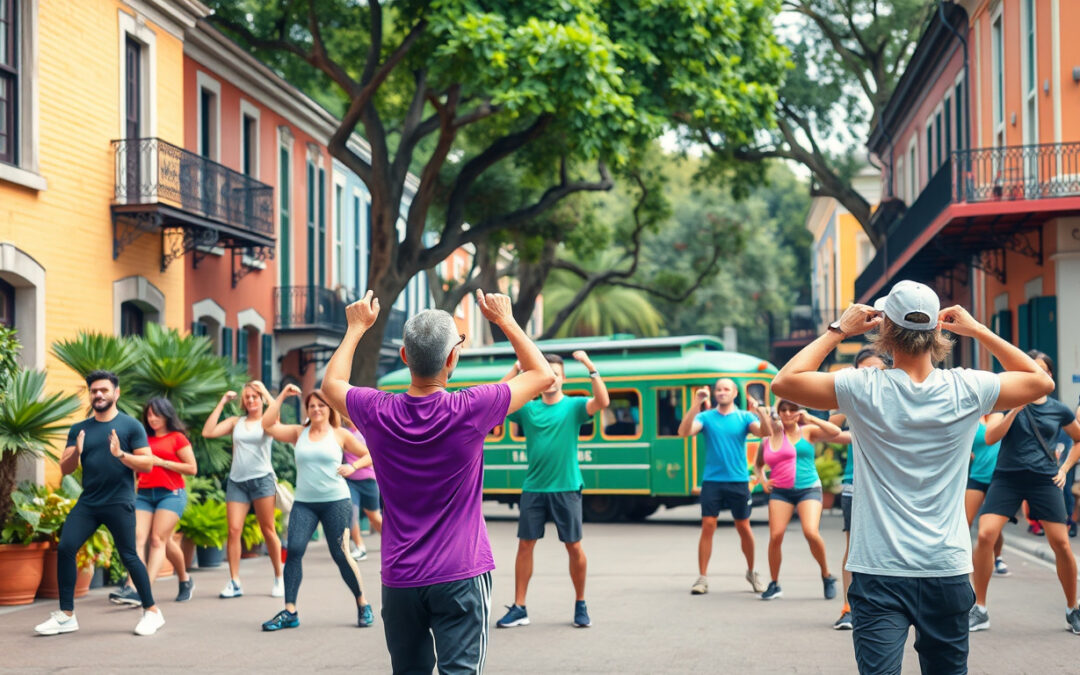
BLOG
New Orleans is a city brimming with culture, history, and vibrant energy, making it an ideal backdrop for anyone looking to enhance their training routine. Whether you’re a seasoned athlete or a fitness novice, tapping into the unique aspects of this lively city can provide you with exceptional new insights and strategies. In this article, we’ll explore essential New Orleans-focused training tips and where to start your journey, ensuring you can maximize your training experience while immersing yourself in the rich local culture. From understanding the distinct environmental features of this southern gem to gathering expert advice from local athletes, you’re in the right place to discover how to train effectively in a city like no other!

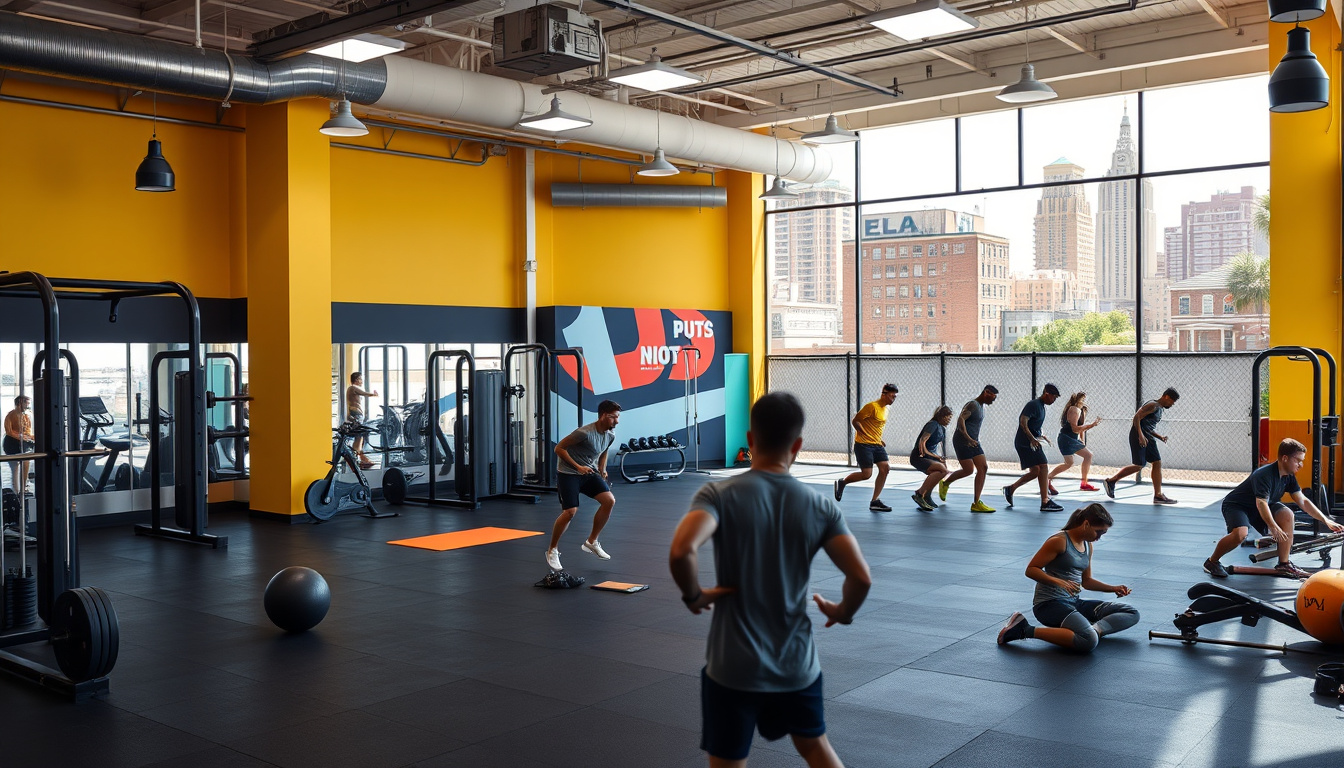
Top Facilities and Resources for Training in New Orleans
When seeking effective New Orleans-focused training tips and where to start, it’s essential to explore the city’s top-notch facilities and resources. New Orleans boasts an impressive array of training centers, each equipped with state-of-the-art technology and expert instructors. For instance, the New Orleans Business Alliance offers tailored business courses that cater to various industries, helping entrepreneurs sharpen their skills. Additionally, the American Society for Training & Development (ASTD) New Orleans chapter provides workshops and seminars led by experienced trainers who understand the local market’s needs. For those interested in personal development, institutions like the New Orleans Yoga & Wellness Center offer holistic training programs to enhance both physical and mental well-being. By leveraging these valuable resources, individuals can find exactly what they need to kickstart their training journey in New Orleans.
Popular Outdoor Activities and Training Spots
When it comes to outdoor activities in New Orleans, the opportunities are as vibrant as the city itself. From kayaking on the bayous to biking through the historic French Quarter, there are countless ways to stay active while enjoying the unique culture and scenery. For those looking to enhance their fitness regime, consider starting with popular outdoor training spots such as Audubon Park, which features picturesque trails perfect for running or Pilates in the park, and City Park, home to expansive green spaces ideal for yoga and group workouts. Not to mention, the Mississippi River levee offers a stunning backdrop for cycling and strength training sessions as you relish the fresh air. Incorporating these New Orleans-focused training tips into your routine will not only help you stay physically fit but also allow you to fully immerse yourself in the city’s enchanting atmosphere. Whether you’re an outdoor novice or a seasoned athlete, these locations provide an excellent foundation to begin your fitness journey in New Orleans.

Expert Tips from Local Athletes and Coaches
When it comes to excelling in sports or fitness in the vibrant city of New Orleans, expert tips from local athletes and coaches can be invaluable. With its unique climate and cultural landscape, New Orleans-focused training tips often emphasize acclimatization to the heat and humidity. For starters, consider incorporating outdoor workouts during the cooler morning hours or in shaded areas to maximize comfort and performance. Local coaches recommend getting involved in community training sessions, such as those offered by various sports clubs or fitness groups around the city. These not only help in honing skills but also provide a supportive environment to motivate one another. Furthermore, nutrition plays a crucial role in any training regimen, so understanding the local cuisine—such as incorporating nutrient-dense staples like beans and rice, along with fresh seafood—can provide that essential fuel. Begin your journey by identifying which local sports clubs align with your interests or joining social media groups dedicated to fitness in New Orleans, thereby immersing yourself in a community that inspires and uplifts your training experience.
Creating a Personalized Training Regimen for New Orleans
When it comes to enhancing your fitness journey, focusing on New Orleans-centered training tips can provide a unique advantage, thanks to the city’s vibrant culture and diverse landscapes. First, consider the various outdoor spaces available, such as City Park or Audubon Park, which are perfect for jogging or group workouts amidst nature. Incorporating local elements like dance, especially styles rooted in New Orleans’ rich musical heritage, can make your routine not only effective but enjoyable. To start, tailor your regimen with a mix of aerobic activities, strength training utilizing bodyweight exercises, and flexibility practices like yoga or pilates, all while embracing the lively atmosphere that this city offers. Additionally, consider connecting with local fitness communities or attending events such as the Crescent City Classic for motivation and camaraderie. By leveraging these New Orleans-focused training tips, you can create a personalized regimen that suits your lifestyle and love for the city.
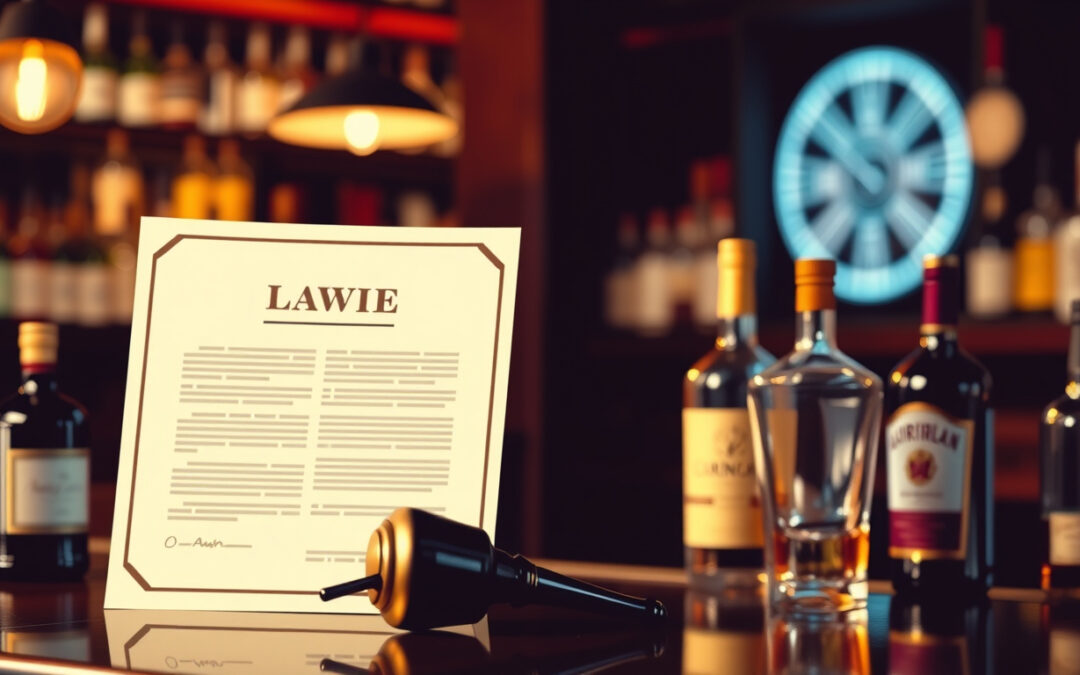
BLOG
Navigating the complex world of liquor laws is essential for both consumers and businesses involved in the sale and consumption of alcohol. Whether you’re planning to open a bar, attend a party, or just enjoy a drink responsibly, understanding liquor laws can help you stay within legal boundaries and avoid costly penalties. This comprehensive guide aims to demystify liquor laws, explain their importance, and provide practical advice for compliance and responsible drinking.
What Are Liquor Laws?
Liquor laws are regulations enacted by federal, state, and local governments to control the sale, distribution, and consumption of alcohol. These laws are designed to promote public safety, prevent underage drinking, and regulate alcohol’s impact on society. Because liquor laws vary widely by jurisdiction, it’s crucial for consumers and business owners to be familiar with the specific regulations in their area.
Why Are Liquor Laws Important?
Understanding liquor laws is vital for multiple reasons:
- Legal Compliance: Avoid fines, license suspensions, or criminal charges.
- Public Safety: Reduce alcohol-related accidents and injuries.
- Business Operation: Ensure your establishment operates within legal parameters.
- Responsible Consumption: Promote safe drinking practices among consumers.
Failing to adhere to liquor laws can have serious consequences both legally and socially. Therefore, education and awareness are key for everyone involved with alcohol.
The Key Components of Liquor Laws
Liquor laws encompass various aspects of alcohol regulation, including:
1. Licensing and Permits
Businesses must obtain specific licenses to sell alcohol legally. These licenses vary in type depending on the nature of the business:
- Retail License: For stores selling alcohol for off-premises consumption.
- On-Premises License: For bars, restaurants, or clubs serving alcohol on-site.
- Special Event Permits: For temporary sales at events or festivals.
2. Age Restrictions
Most jurisdictions prohibit the sale and consumption of alcohol by individuals under 21. Some states allow limited exceptions, such as for religious ceremonies or with parental supervision at home.
3. Hours of Sale
Liquor laws often specify the hours during which alcohol can be sold or served. For example, sales might be restricted to certain times of the day or week, especially on holidays or special occasions.
4. Drinking and Driving Laws
Strict regulations exist regarding operating vehicles under the influence of alcohol. The legal blood alcohol content (BAC) legal limit is typically 0.08%, but it can be lower in some states or specific situations.
5. Licensing Restrictions and Compliance
Businesses must adhere to operating standards, including responsible serving practices, record-keeping, and age verification procedures.
6. Advertising and Promotions
Many places regulate alcohol advertising to prevent targeting minors and to promote responsible drinking.
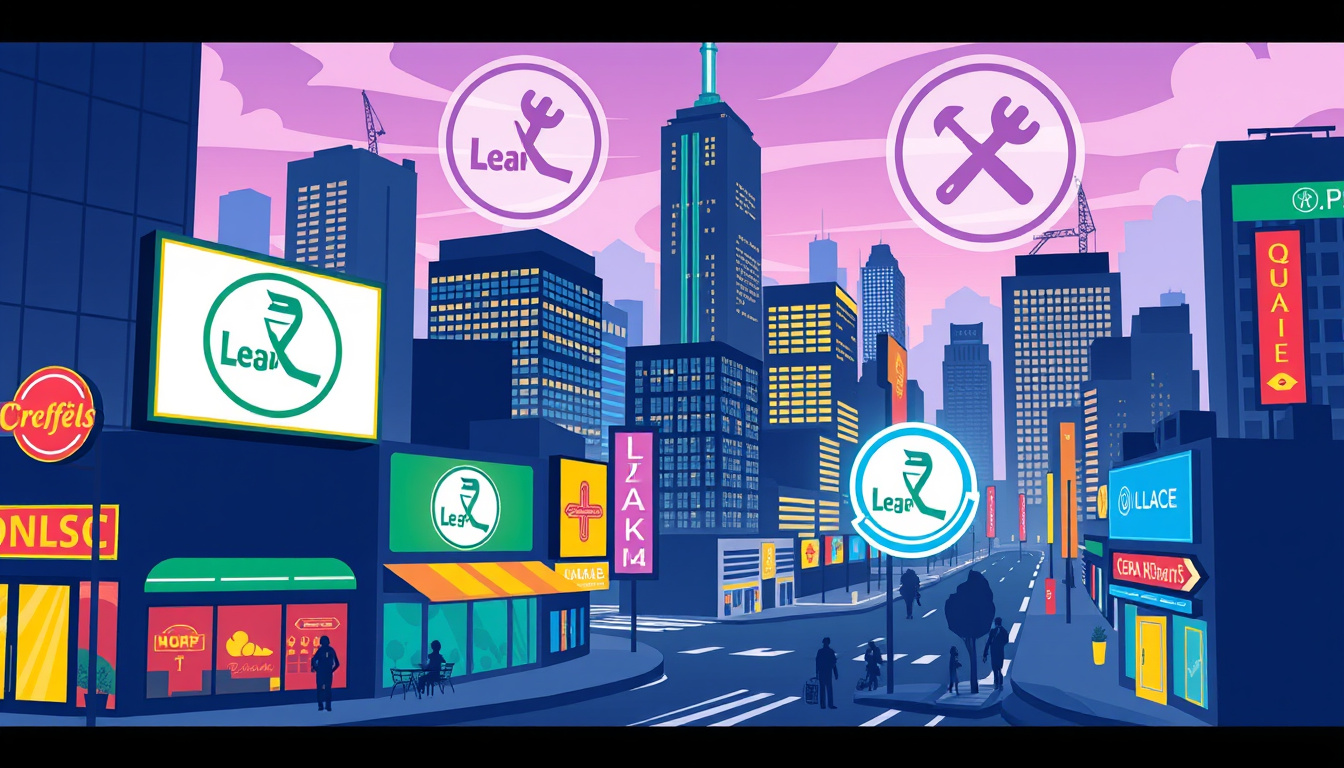
How Liquor Laws Vary by Jurisdiction
Liquor laws are not uniform across the country. For instance:
- Some states allow alcohol sales on Sundays, while others prohibit it.
- Certain municipalities have dry laws banning alcohol sales altogether.
- Licensing fees and application procedures differ widely.
It’s essential for businesses and consumers to consult local regulations. State alcohol control boards or commissions are authoritative sources for specific rules.
Practical Tips for Compliant Alcohol Consumption and Sales
Whether you’re a consumer or a business owner, these practical tips can help ensure compliance with liquor laws:
For Consumers:
- Always carry valid identification to prove age.
- Consume alcohol responsibly and never drink and drive.
- Be aware of local restrictions when attending events or visiting different jurisdictions.
For Business Owners:
- Obtain all required licenses before opening or selling alcohol.
- Train staff on legal age verification and responsible service.
- Monitor sales hours and adhere to limits set by local regulations.
- Keep detailed records of alcohol inventory and sales.
Common Liquor Law Pitfalls and How to Avoid Them
Here’s a list of common issues related to liquor laws and ways to prevent them:
- Serving Minors: Always verify IDs before serving alcohol.
- Selling Outside Allowed Hours: Stick to permitted sale times.
- Operating Without Proper Licensing: Secure necessary permits before starting sales.
- Ignoring State or Local Restrictions: Regularly review updates to liquor laws.
- Misleading Advertising: Follow guidelines on responsible and truthful promotion.
By staying informed and diligent, businesses can protect themselves and consumers alike.
The Role of Education and Enforcement
Enforcement agencies regularly audit and inspect establishments to ensure compliance. Education campaigns also play a significant role in promoting awareness, especially for new licensees or in areas with high underage drinking rates. Collaborative efforts between authorities and the community foster safer environments regarding alcohol consumption.
Conclusion
Understanding liquor laws is fundamental to maintaining legal compliance, ensuring safety, and fostering responsible drinking habits. For consumers, it means knowing your rights and responsibilities; for businesses, it’s about adhering to rules that promote fairness and safety. As laws evolve, staying informed through official sources and legal counsel helps prevent violations and encourages a culture of responsible alcohol use.
Top 5 Tips for Navigating Liquor Laws
- Stay Updated: Laws change frequently—regularly review local regulations.
- Verify Age Every Time: Always check IDs to prevent illegal sales.
- Secure Necessary Licenses: Don’t operate without proper permits.
- Train Staff Regularly: Educate employees on legal responsibilities.
- Promote Responsible Drinking: Encourage safe consumption in your establishment or social circles.
Frequently Asked Questions (FAQs)
Q1: What are the most important liquor laws for consumers to know?
A1: The most critical liquor laws for consumers include age restrictions (generally 21 and over), regulations regarding drinking and driving (BAC limits), and local ordinances about where and when alcohol can be consumed legally.
Q2: How can businesses ensure they are compliant with liquor laws?
A2: Businesses should obtain all necessary licenses, train staff in responsible service and age verification, keep accurate records, and adhere to permitted sale hours and advertising regulations.
Q3: Are liquor laws the same across all states?
A3: No, liquor laws vary significantly across states and municipalities. It’s essential to consult local authorities or legal counsel to understand specific regulations applicable in your area.
Final Thoughts
Navigating liquor laws may seem daunting, but with proper knowledge and diligent compliance, you can enjoy and sell alcohol responsibly and safely. For authoritative guidance, always refer to your state or local alcohol control authority, and stay updated on any legal amendments. Responsible alcohol consumption and adherence to liquor laws benefit everyone—creating safer communities and thriving businesses.
(Source: National Institute on Alcohol Abuse and Alcoholism)
Remember, staying informed and compliant isn’t just about avoiding penalties; it’s about fostering a culture of responsibility and safety around alcohol.

BLOG
If you’re looking to work in the vibrant hospitality scene of New Orleans, obtaining a bar card is essential. Known formally as a Local Server Certification, this credential allows you to legally serve alcohol while ensuring you understand responsible service practices. This guide will walk you through how to get a bar card in New Orleans, offering practical tips and insights to streamline the process and help you navigate any challenges effectively.

Key Takeaways
- Familiarize yourself with New Orleans’ specific bar card requirements before starting the application process.
- Follow a clear step-by-step approach to completing the local server certification.
- Select a reputable certification course that fits your schedule and learning style.
- Gather all necessary documents and budget for any associated fees early in the application process.
- Study thoroughly for the exam and be aware of common pitfalls to ensure a successful certification experience.
Understanding the Bar Card Requirement in New Orleans
In New Orleans, obtaining a bar card is a crucial step for individuals aspiring to work in the hospitality industry, particularly in bars and restaurants. The bar card acts as a local server certification, demonstrating that you are trained in responsible alcohol service and understand the laws surrounding the sale of alcohol in Louisiana. To get a bar card in New Orleans, it is essential to complete a state-approved Responsible Vendor Training Program. This program typically covers topics such as identifying intoxicated customers, recognizing fake IDs, and understanding local alcohol-related laws. Once you’ve finished the training, you must apply for the card through the New Orleans Office of Safety and Permits. This application often involves submitting proof of training, identification, and possibly a small fee. By following these steps and ensuring you stay updated on regulations, you can easily navigate the process of how to get a bar card in New Orleans and enhance your employability in the vibrant local nightlife scene.
Steps to Complete Local Server Certification
Obtaining a Bar Card in New Orleans requires you to complete the Local Server Certification, which is essential for those who wish to serve alcohol in bars and restaurants. To start, familiarize yourself with the regulations outlined by the Louisiana Office of Alcohol and Tobacco Control (ATC). The first step is to enroll in a Local Server Certification training program, which is often available through various organizations and online platforms. These courses typically cover responsible alcohol service, checking IDs, and understanding the effects of alcohol on patrons. After successfully completing the course, you will need to pass a certification exam to demonstrate your knowledge. Once certified, apply for your Bar Card through the ATC by submitting the required documents, including your training certificate and paying the applicable fees. By following these steps carefully, you can ensure a smooth process in how to get a Bar Card in New Orleans, enabling you to legally serve alcohol in this vibrant city.
‘Success is where preparation and opportunity meet.’ – Bobby Unthank

Choosing the Right Certification Course
Choosing the right certification course is crucial for anyone looking to understand how to get a bar card in New Orleans. With the unique hospitality landscape of this vibrant city, it’s important to select a program that not only meets state requirements but also provides valuable insights into local serving laws. Start by researching approved courses offered by the Louisiana Office of Alcohol and Tobacco Control (ATC). Look for programs that cover essential topics such as responsible alcohol service, legal implications of serving alcohol, and effective customer interaction strategies. Additionally, consider classes that offer hands-on experiences, which can help reinforce the material learned. Investing time in selecting the right certification course will prepare you for the bar card application process and enhance your career in the bustling New Orleans service industry.
Necessary Documents and Fees for Application
When navigating the process of how to get a bar card in New Orleans, understanding the necessary documents and associated fees is crucial. To successfully apply for a bar card, you will need to gather several key documents, including proof of local server certification, a valid government-issued ID, and any required background check forms. Local server certification is essential as it demonstrates your understanding of responsible alcohol service, which is a requirement for bar staff in New Orleans. In addition to these documents, applicants should be prepared to pay an application fee, which can vary depending on the licensing authority. Staying informed about the current fees and requirements will streamline your application process, ensuring you can start your bartending career in this vibrant city with ease.

Preparing for the Certification Exam
Preparing for the certification exam is a crucial step for anyone looking to serve alcohol in New Orleans. Understanding how to get a bar card in New Orleans involves a few key components, including mastering the local laws and regulations related to alcohol service. Begin your preparation by familiarizing yourself with the specific requirements set forth by the Louisiana Office of Alcohol and Tobacco Control, as these will guide you through the process. It’s important to enroll in a certified server training program, which often includes information on safe alcohol serving practices, identifying fake IDs, and the responsible service of alcohol. Sunny side up, these courses not only equip you with the necessary knowledge but also prepare you for the certification exam. Allocate ample study time, practice sample questions, and immerse yourself in understanding New Orleans’ unique culture regarding alcohol service. With diligence and preparation, obtaining your bar card and ensuring compliance with state regulations will be within your reach.
Tips for Success and Common Pitfalls to Avoid
If you’re aiming to serve alcohol in the vibrant city of New Orleans, understanding how to get a bar card in New Orleans is essential. To successfully navigate this process, start by ensuring you meet the eligibility requirements, such as being at least 18 years old and completing a local server certification course. Many local establishments offer training sessions that not only prepare you for obtaining your bar card but also provide insights into responsible serving practices. Additionally, be proactive in gathering the necessary documentation, including identification and proof of completion of the certification course. A common pitfall to avoid is neglecting to familiarize yourself with city regulations; different establishments may have specific rules that can affect your eligibility. Lastly, networking with seasoned bartenders can provide insider tips that streamline your journey to earning your bar card. By following these tips and avoiding typical mistakes, you’ll be well on your way to becoming a licensed server in the Big Easy.
















